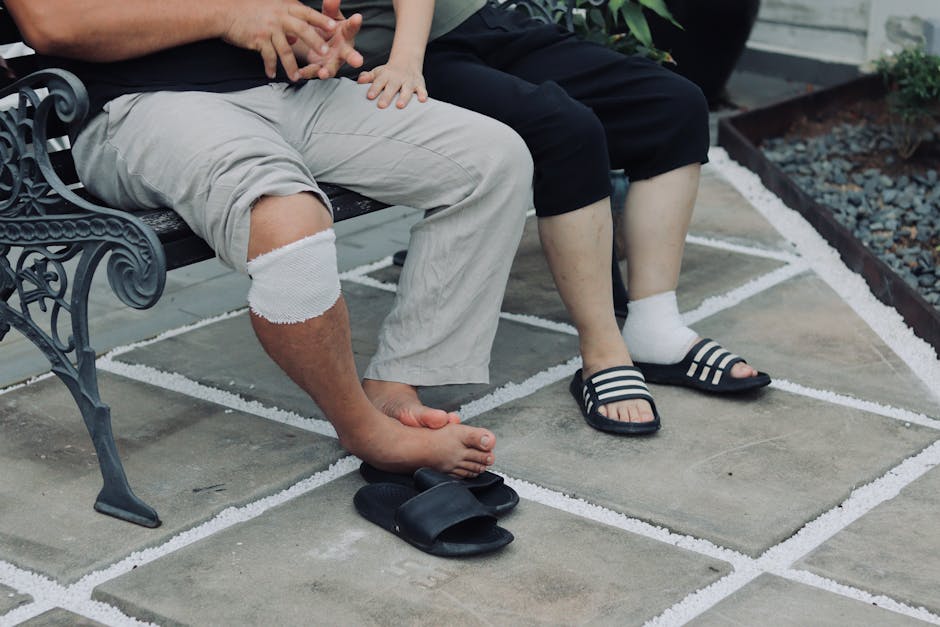Understanding the process of a personal injury lawsuit can be daunting, but it’s an area many unknowingly enter.
If you’ve been injured due to the negligence of another person, it’s crucial to know your rights. You may be entitled to compensation. The legal process, however, can seem complex and overwhelming.
This blog post aims to simplify the process with clear, step-by-step guidance. We will walk you through each stage, from submitting your claim to reaching a settlement or heading to trial.
Rest assured, this is to arm you with vital knowledge before you embark on this journey. It’s the first step towards gaining the compensation you deserve.
Stay tuned as we unravel the process of a personal injury lawsuit.
Importance of Immediate Medical Attention

In any personal injury case, immediate medical attention should never be swept under the rug. Irrespective of the severity of your injury, seeking immediate and professional medical help should be the first step.
Early medical intervention not only accelerates one’s recovery, but it solidifies the personal injury lawsuit. It helps establish a clear link between the accident and the sustained injuries, eliminating any room for speculation.
Moreover, insurance companies often scrutinize the gap between the time of incident and the first medical intervention. A delay might be construed as an indication that injuries were not severe, thus affecting the claim’s value.
Remember, immediate medical attention after an incident isn’t only crucial for your health—it’s equally pivotal for your potential personal injury lawsuit.
Gathering and Preserving Relevant Evidence

Gathering tangible evidence plays a pivotal role in winning a personal injury lawsuit.
Start by collecting as much concrete evidence from the accident scene as possible. Photos and videos can provide indisputable, visual proof.
Next, record all medical treatment related to the injury. Include statements from attending physicians, medical bills, and pharmacy records.
Obtain a copy of the police report if applicable. It can serve as a neutral third-party account of the accident.
Document any time lost from work and lost wages due to the injury.
Collect any correspondence or records of dealings with insurance companies.
Finally, store all the evidence properly, ensuring it doesn’t get damaged or lost. Digital copies come in handy. Follow strategies highlighted by legal professionals to make your case as strong as possible.
Consulting with a Personal Injury Attorney
The first step to embarking on a personal injury lawsuit is undoubtedly consulting with a seasoned personal injury attorney. Your attorney becomes your guide and advocate throughout the complex legal labyrinth.
When you meet with an attorney, you’ll discuss the circumstances surrounding your injuries. Be prepared to provide detailed accounts of the incident, relevant dates, and any medical treatments received. This conversation helps the attorney assess your case’s strength and decide on the best course of action.
Personal injury attorneys are skilled at identifying potential sources of financial recovery. They can also negotiate with insurance companies on your behalf, mitigating your stress. It’s critical to remember, in your communication with your attorney, honesty is paramount.
Selecting an experienced personal injury attorney is a significant first step in getting the compensation you deserve. The relationship you build with your attorney can set the tone for your entire lawsuit.
Filing a Personal Injury Lawsuit

The first step in seeking justice for personal injury is filing a lawsuit.
Detailed documentation is paramount to prepare a successful legal claim. Crucial aspects include medical records, accident scene photographs, and witness statements, each contributing substantial weight to your case.
Next, formulate a complaint, which is essentially a document highlighting your allegations and legal basis for the suit.
Serving the defendant with this lawsuit is the subsequent step, thus providing them a chance to prepare their legal defense.
The defendant then files an answer, either admitting or denying the allegations made.
This initial complex process requires careful navigation if you aspire to get the justice you deserve. It’s often ideal to seek a reputable lawyer’s services to guide you throughout this procedure, ensuring your lawsuit is filed accurately and timely.
Remember, documentation and details play a vital role in these early stages, making the difference between compensation or going home empty-handed.
Discovery Process in Personal Injury Cases

In personal injury cases, the discovery process is a vital part of lawsuit progression. This pre-trial procedure allows both parties to investigate the facts of the case by obtaining evidence from the opposing party and others involved.
This discovery process involves written questions known as Interrogatories, which are used to gain core facts and identify witnesses.
Requests for Production of Documents usually follow, which seeks anything relevant to the case, like medical records, photos of injuries, and any other supporting material.
In many cases, Depositions might also be conducted. This is a formal, often in-person, interview that is recorded and may be used later in court.
In summary, the discovery process is a crucial step in personal injury cases which ensures that all relevant information comes to light before proceeding to trial. It can directly influence the outcome by partially determining the strength of each party’s case.
Negotiating a Personal Injury Settlement

In a personal injury lawsuit, negotiation plays a vital role.
Once your attorney has gathered all the necessary information, a demand package is prepared and sent to the defendant’s insurance company. This package details: – The incident leading to the injury – The extent of your injuries – Your medical treatment – The impact on earnings and lifestyle – Your financial losses and expenses
The insurance company typically disputes the claims and makes a counteroffer, which kick-starts the negotiation process. You, your attorney, the defendant, and their insurance company start discussing the settlement.
Remember, the negotiation process can take time, and the first offers may not be satisfactory. But with sturdy facts and strong, persuasive arguments, a fair settlement can be reached without going to trial.
Going to Trial if Settlement Fails

In some cases, despite our best efforts, no amicable settlement can be reached upfront. If this happens, don’t despair. Your case is then prepared for trial.
A trial involves presenting your case before a judge or jury. Lawyers on both sides will argue their case, present evidence, and question witnesses. This stage can be particularly stressful, but a skilled personal injury attorney will help you navigate this process and fully represent your interests.
Remember, going to trial does not mean that opportunities for negotiation are over. Often, a settlement may be reached right up until the final verdict is delivered. Whichever direction your case takes, stay patient and trust in the legal process.
Please note that every personal injury case is unique, and thus, the process may vary. We are here to guide you every step of the way.
Aftermath of a Personal Injury Verdict

The aftermath of a personal injury verdict can bring about a mixture of relief, satisfaction, and confusion.
The relief comes when justice is served, and the injured party is rightfully compensated. Satisfaction follows when the burden of overwhelming medical bills and loss of income are alleviated.
On the other hand, the confusion often originates from the logistics of the compensation package. Understanding how and when compensation will be paid and how the legal fees factor in can be complex.
Next, navigating the taxation laws related to personal injury verdicts can also create some confusion. Some compensations are tax-free, while others are not, and this depends on several factors including the nature of the injury and the specific damages awarded.
Remember, consult with your attorney or a tax professional to fully comprehend your situation.

